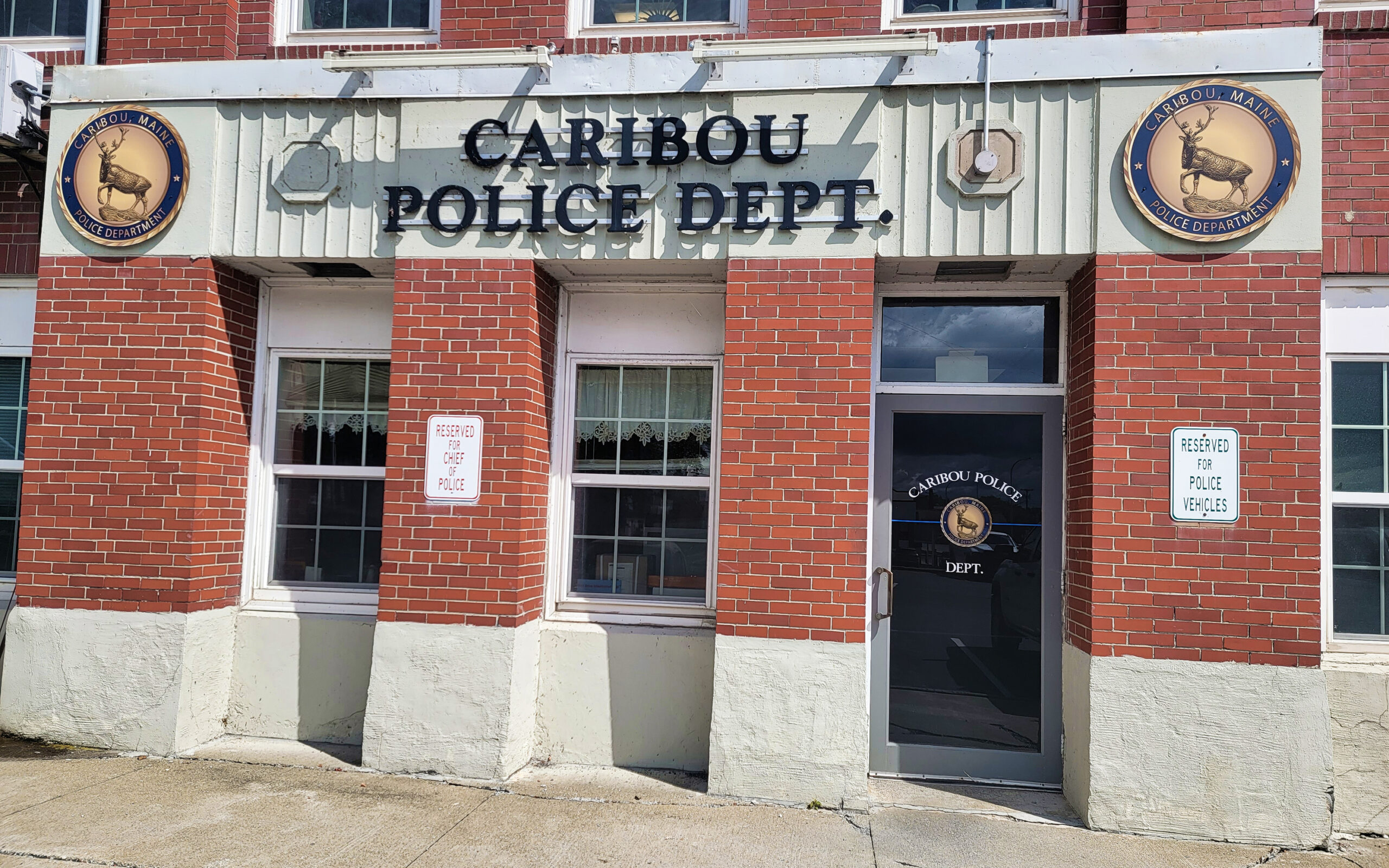
CARIBOU, Maine — On the night before ballots were due to be printed and mailed to absentee voters, Caribou has once again changed its referendum for a new police station.
When voters go to the polls in November, a non-binding straw poll will ask citizens, “Do you favor borrowing money to provide an amount not to exceed $10,000,000 to pay costs of expenditures for the construction and equipping of a new police station for the City of Caribou provided that the money is authorized by Caribou City Council and a referendum approved as specified in the Charter?”
In addition, a second sheet of paper will include an economic impact statement projecting a 1.4 to 1.9 mill increase, should the city pay the maximum for a new station. The statement is based on several loan options to pay the $9.9 million price tag attached to a design architects presented to the city at the end of August.
Neither that design, nor the loans, have been approved by the city council, which has been divided on the new station for more than a month. In fact, before the city spends any money on the police station, it will have to present voters with another, official ballot referendum, rendering the straw poll meaningless.
While the decision is nonbinding, the survey has become the vessel for a prolonged disagreement between councilors on how to move forward with needed renovations to the police station.
The group which had initially opposed the referendum, won a vote Monday night to add the loan financing details, with swing vote Mayor Jody Smith breaking the tie in their favor.
The councilors, who had initially feared that allowing the public to vote on the design would corner the council into spending the full $9.9 million, believe that adding the loan options give residents a fuller picture of the effect a brand new police station could have on the city budget.
However, the group that began by favoring the non-binding referendum, say that including the hypothetical financial impact could scare voters away, when they intend to pursue grants and other lines of funding before approving any final design for the building.
“I’d like to have a Bentley — ask me if I want a Bentley I’ll say you bet I do,” Morrell said. “Show me the suggested price tag and I’ll say I can’t afford that. I think as much as [opposing councilors] think this is loading the question, I think it’s starving the question not to put it out there.”
After supporting the motion to add the tax impact to the survey, councilor Mark Goughan proposed a second idea — to move the town offices, which are currently located above the basement-level police station, into another building, and to expand the police department into the floors above. He was skeptical of the intentions of outside consultants brought in to evaluate the department’s needs.
“The idea that Farmer Mark is going to vote ‘no’ and I’m being interpreted as I don’t want to do anything is not an accurate reflection of my beliefs,” Goughan said. “The thing that’s bothered me during the whole process is the [lack of] transparency for other ideas short of $10 million.”
Goughan said that Caribou needed to think about how to work with the resources it already has and limit the burden on the small, and shrinking population.
Goughan’s proposal was one of the options considered by the architect and engineering firm Artifex during location scouting, though it was ultimately rejected. In its report, the engineering firm wrote that the current city hall would need major upgrades to be brought up to safety codes, which would require Caribou to move the police department to another location anyway during construction.
The city hall has other design flaws according to the report. The building’s mechanical and ventilation systems are easily accessible to the public and the building has no standoff berth — both of which leave the station vulnerable to attack, Artifex wrote.
Goughan’s proposal failed 3-4, with Smith switching back to vote against including a question about the city hall proposal on the survey ballot. Smith and the other opposing councilors said that because the original ballot question is nonbinding — and simply proposes the city spend up to ten million dollars replacing the station — the survey is inclusive of ideas other than the Artifex proposal as well.
As disagreements on the police station stretch into their sixth straight week, the pressure riding on the survey has grown. Councilors agree that the current station needs upgrading, but the group cannot see eye to eye on how to take that challenge on.
The current police station is 100 years old and the department is in dire need of both physical upgrades to the facility and equipment upgrades to bring it up to modern standards, Artifex consulting architect Ellen Angel said. The department lacks the proper facilities to store narcotics and evidence, and has potentially dangerous security shortcomings.
Artifex is willing to work with the financial demands of a small city like Caribou, Angel said, but something has to be done about the current state of the police department.
“When you see a police show on TV, you see all the police out on the street, the detectives… you’re not necessarily focused on the things that contemporary police need to do their job,” Angel said. “The chief needs a new station.”







